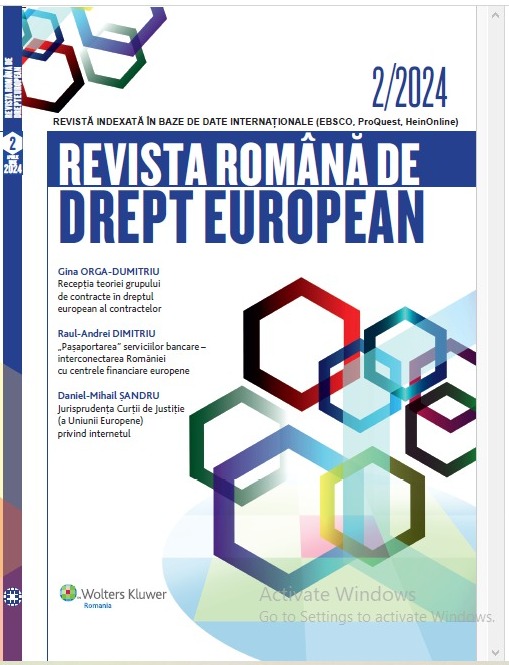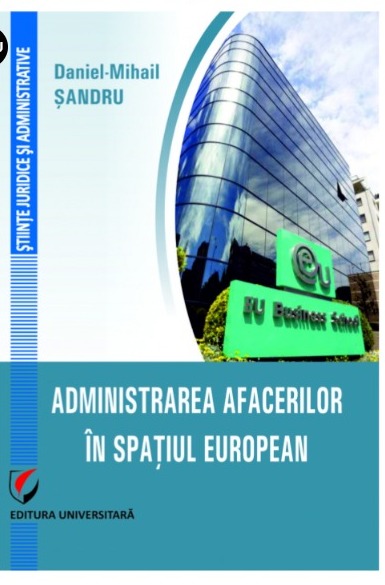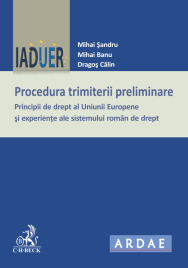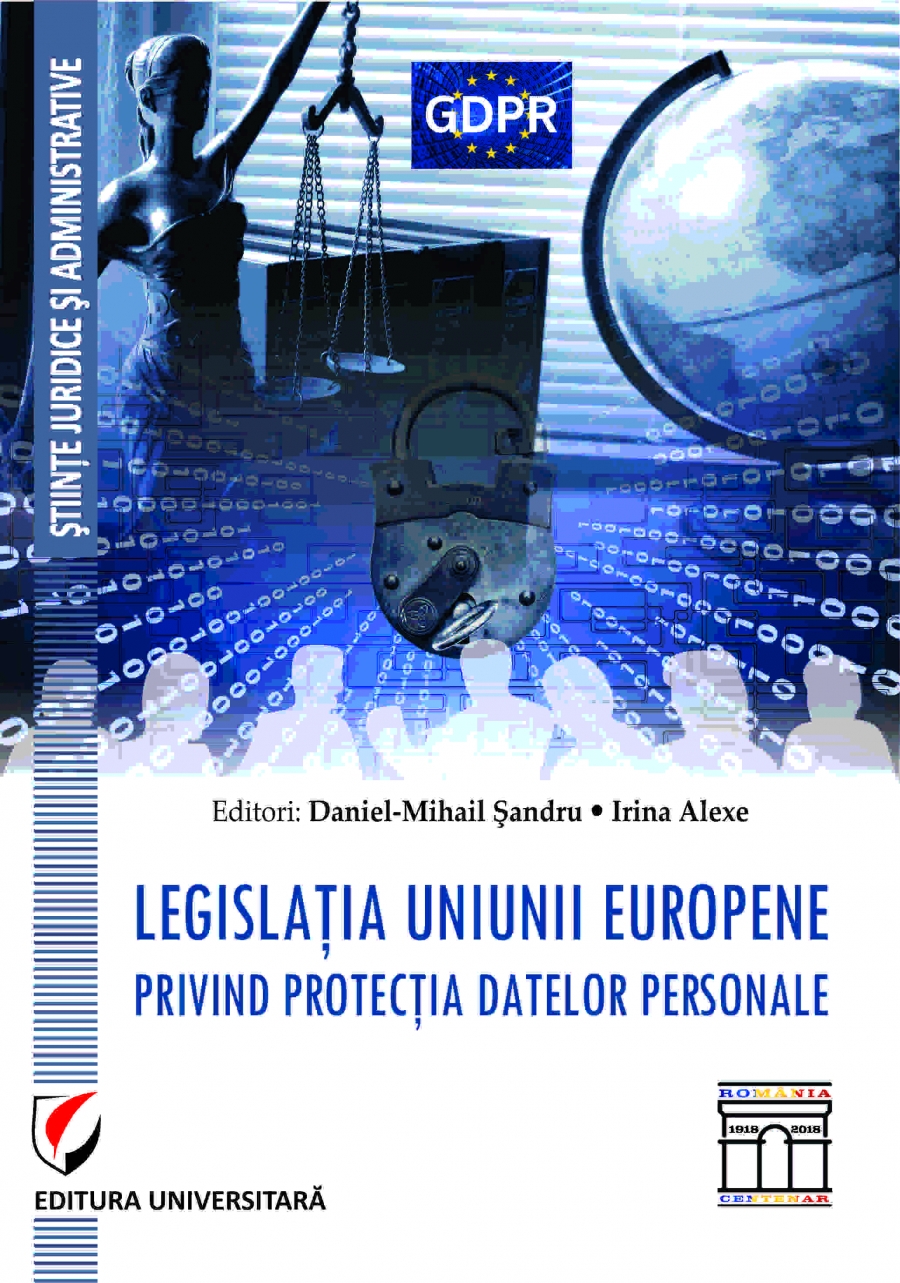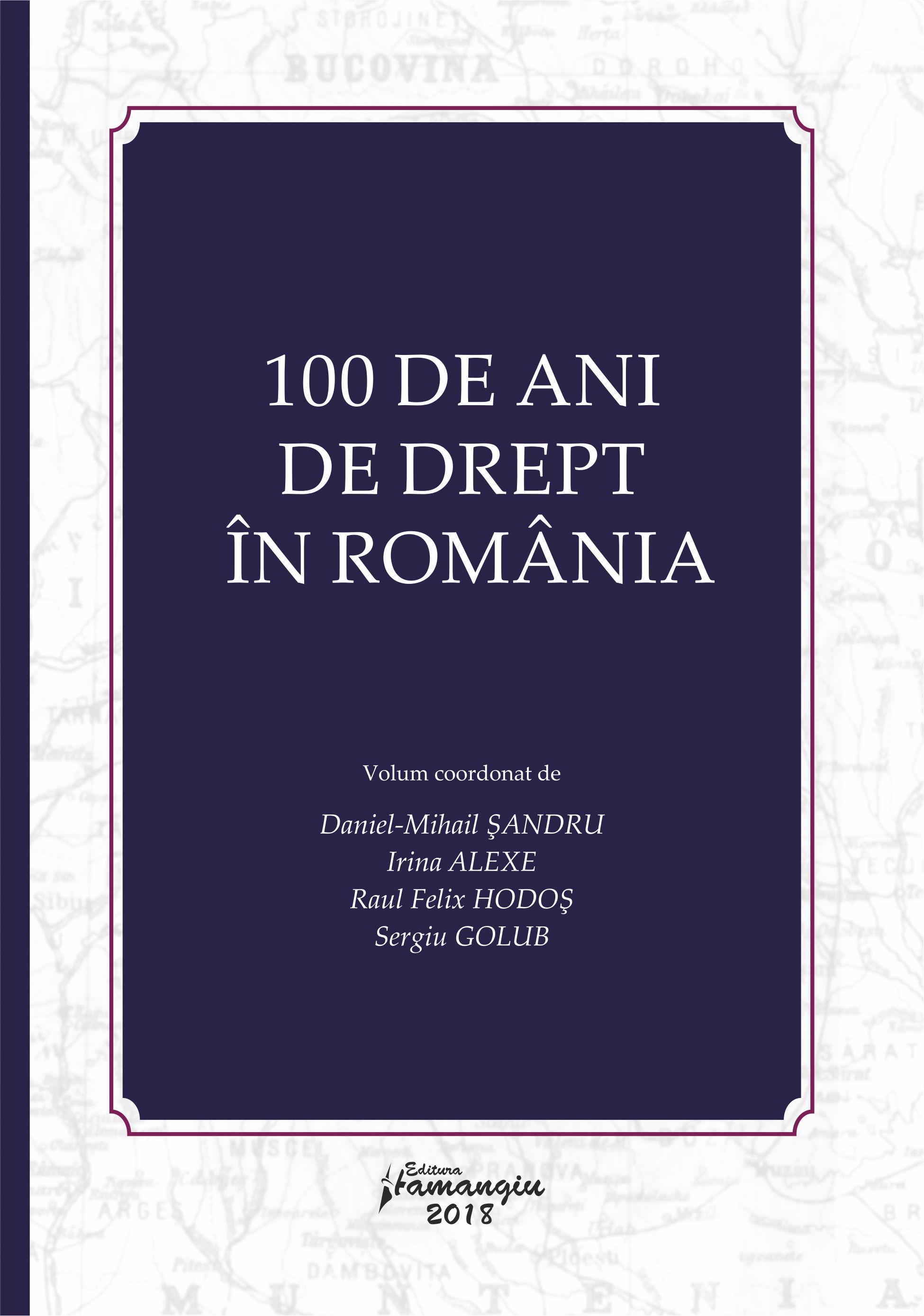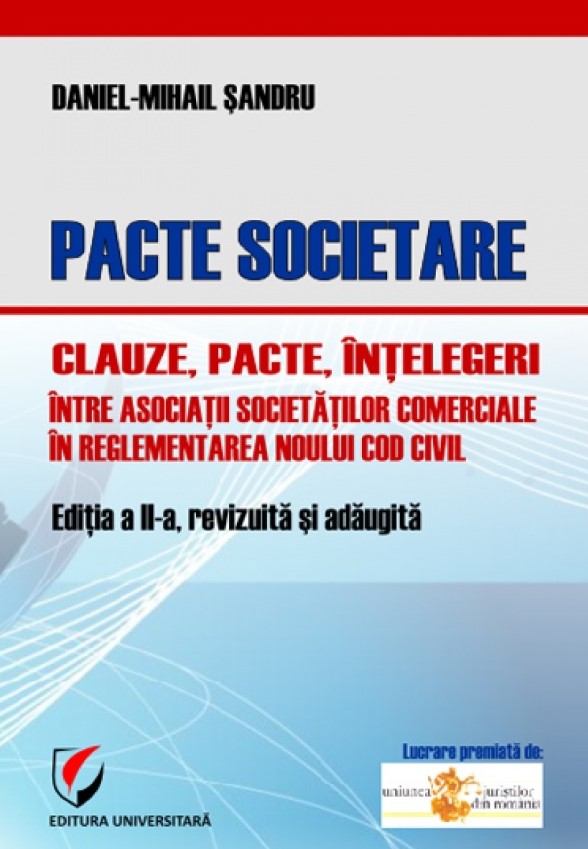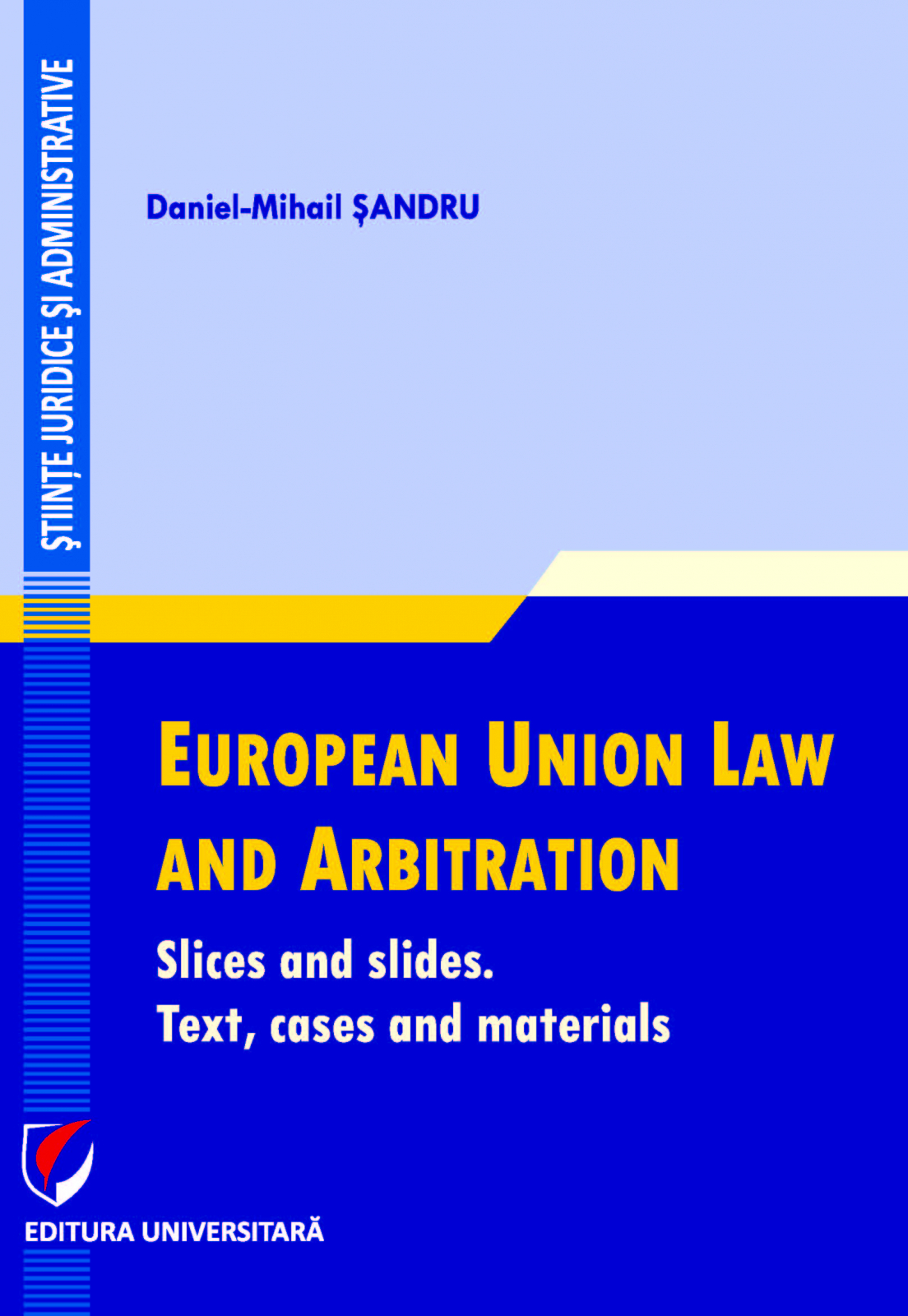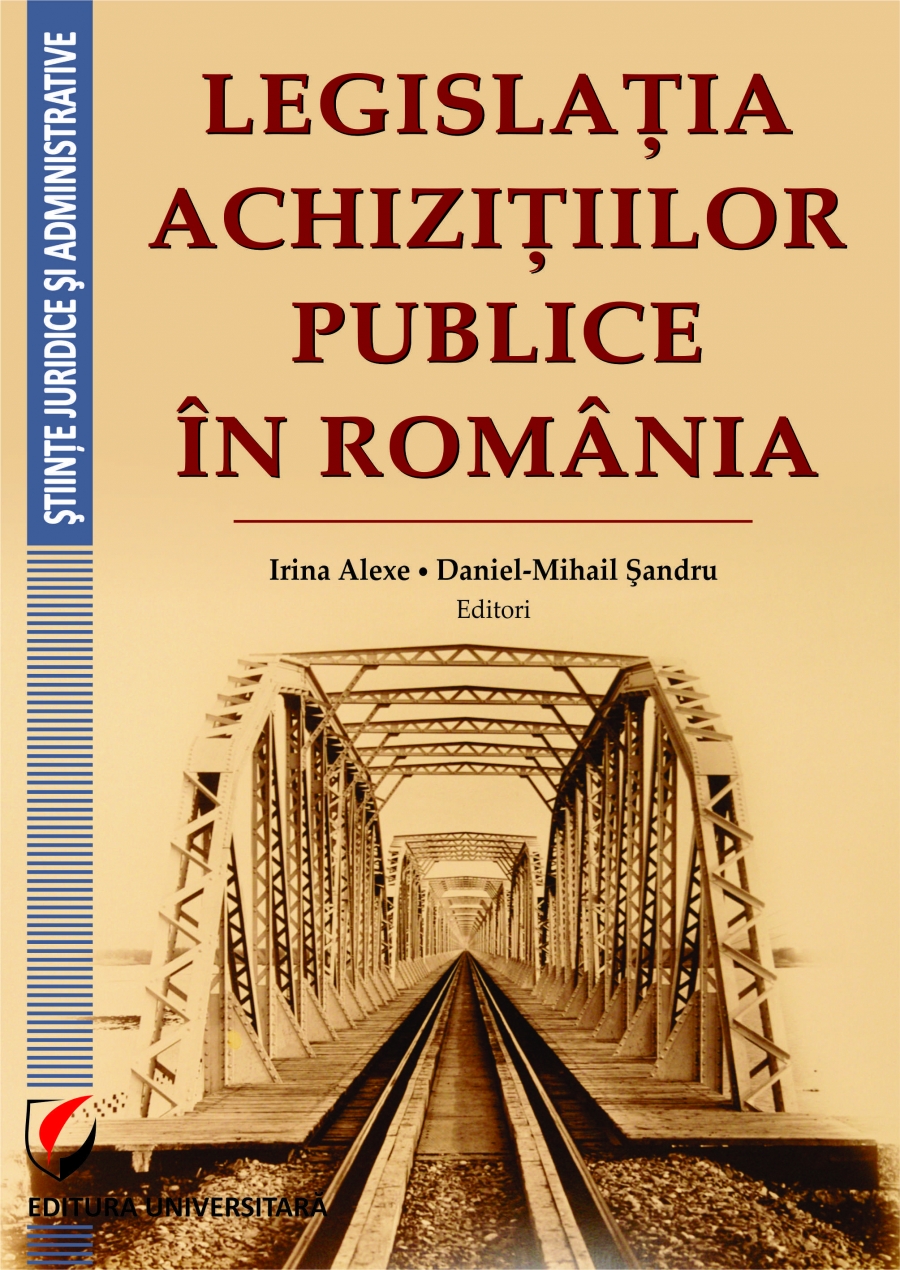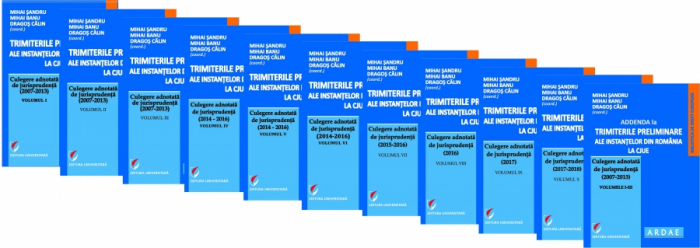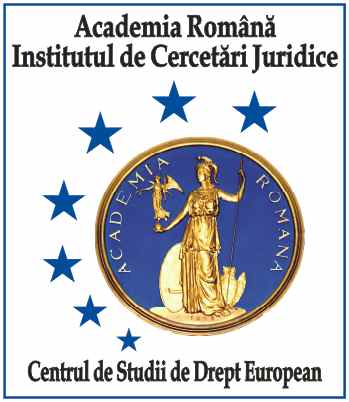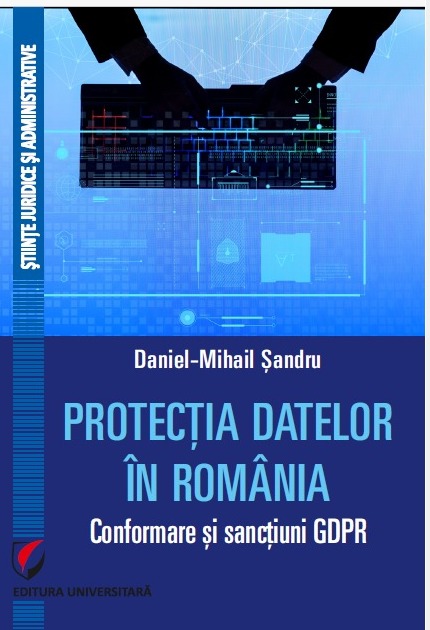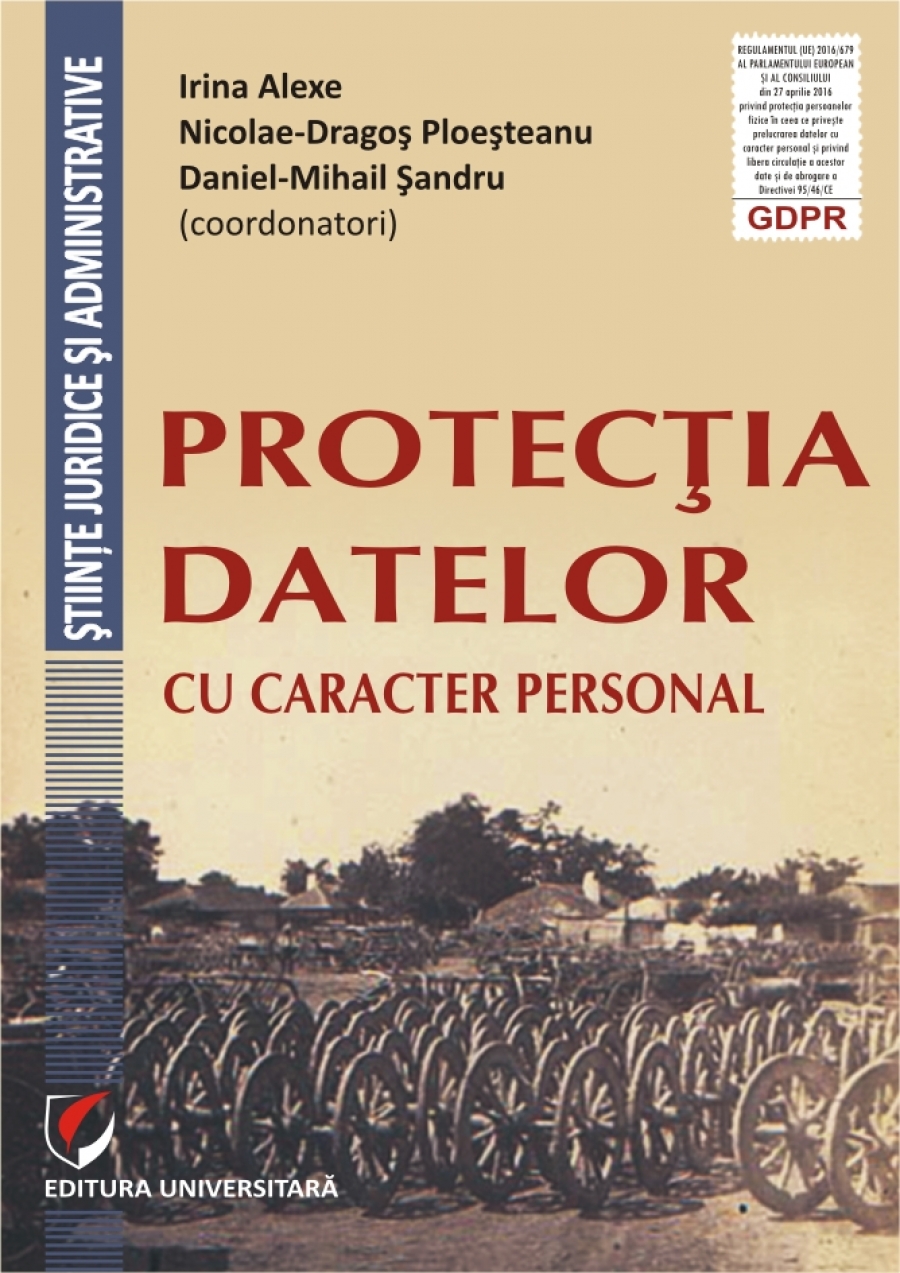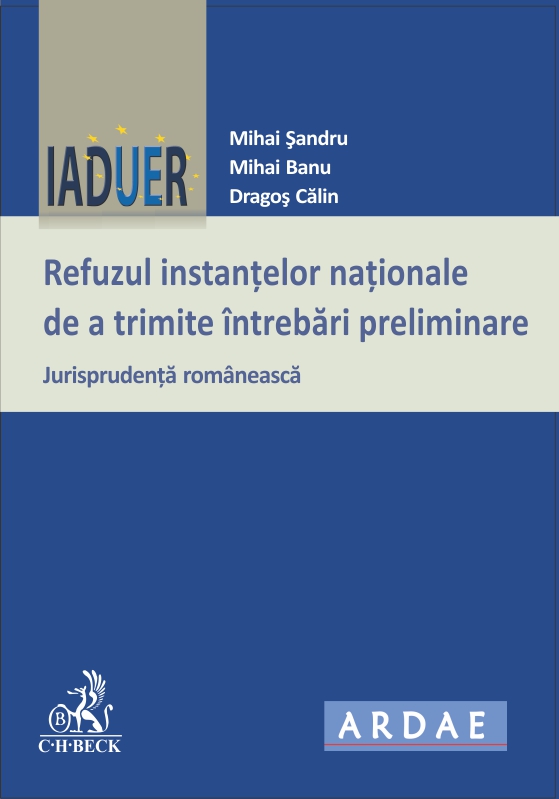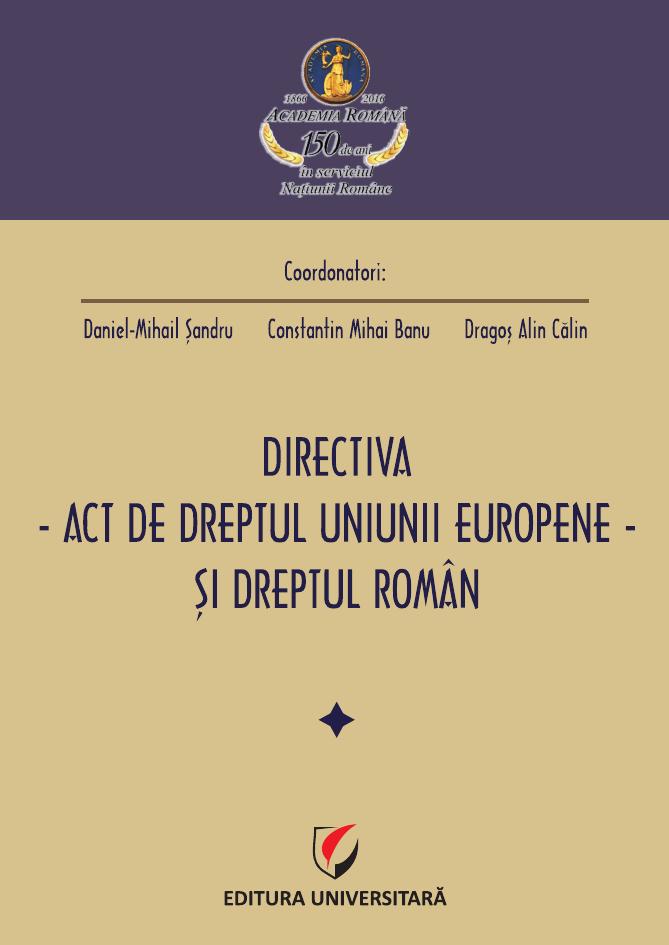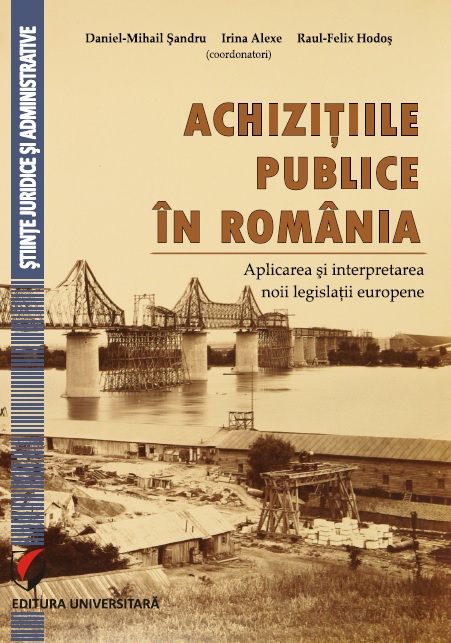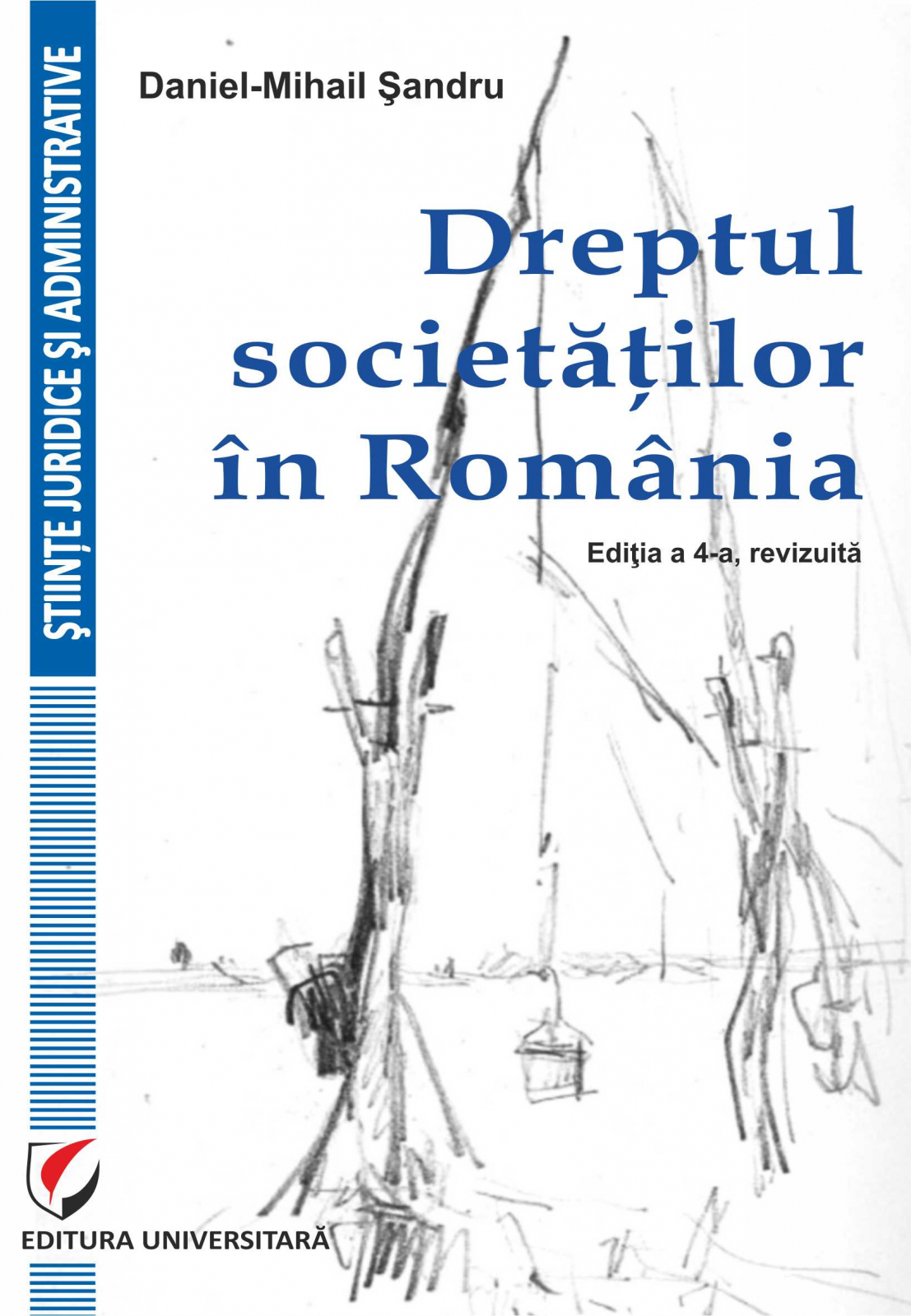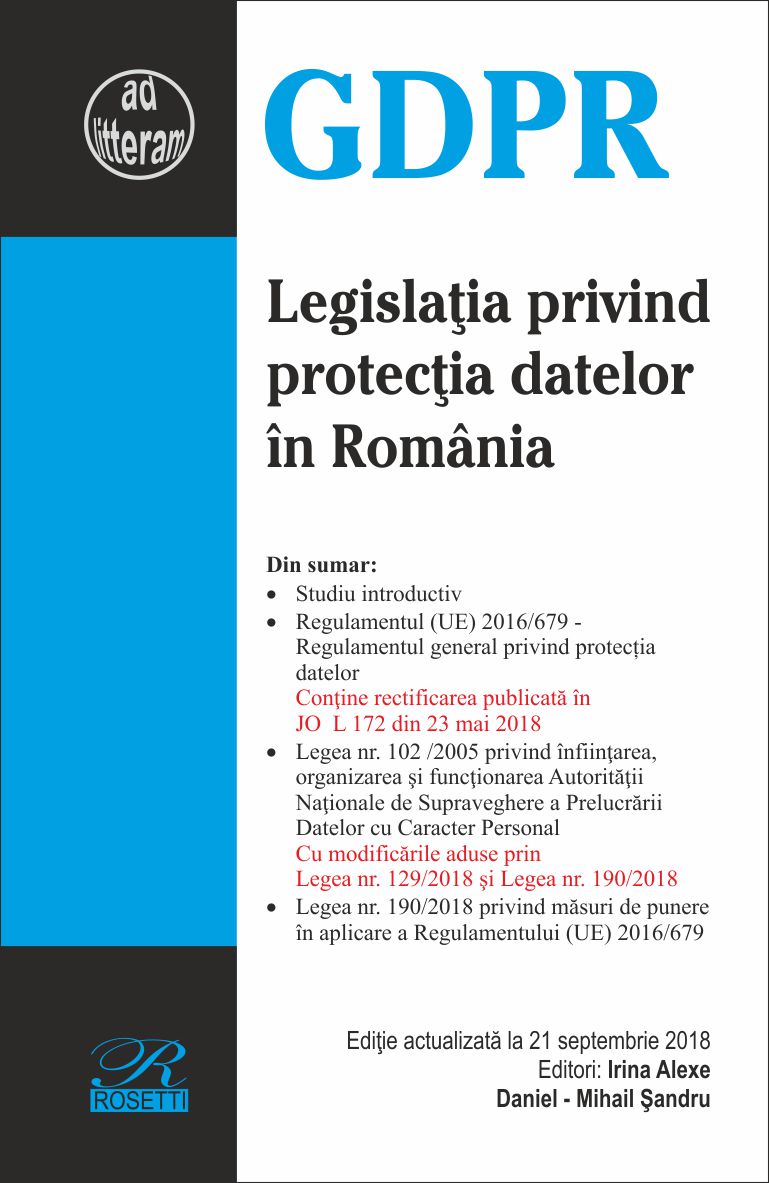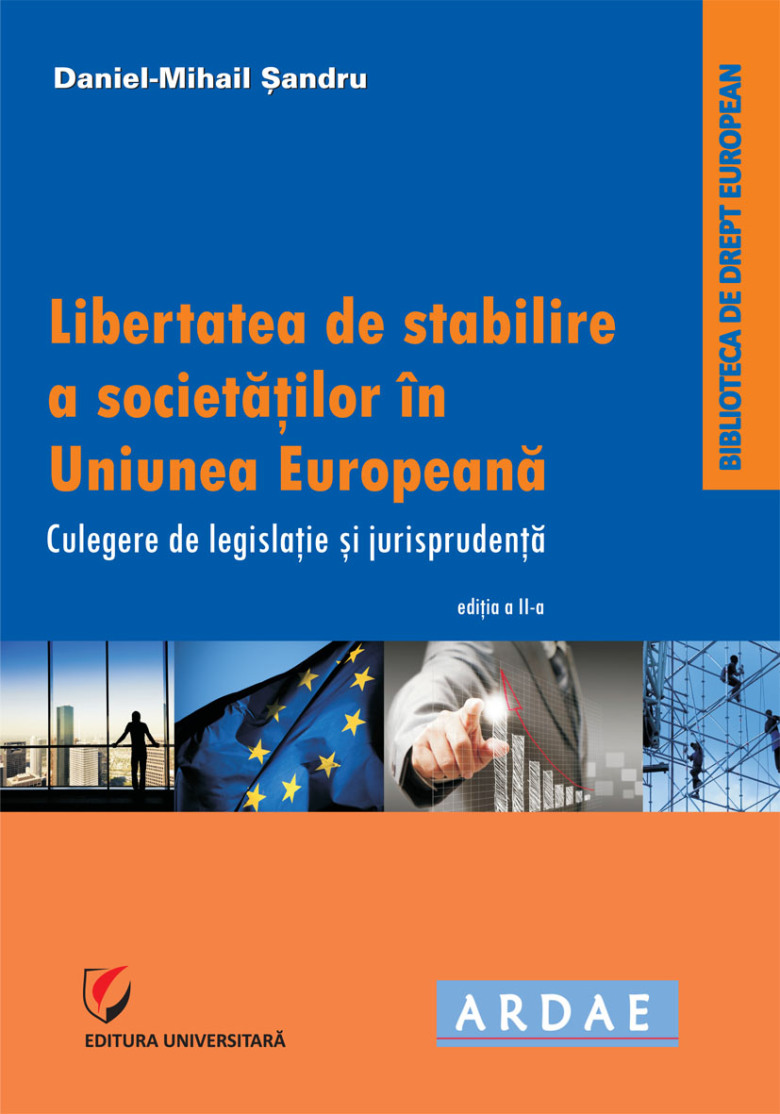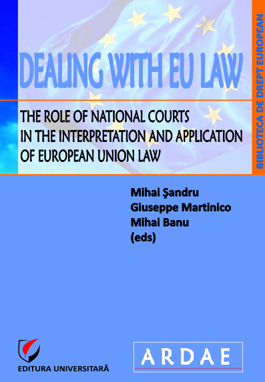Revista Română de Drept Comunitar, nr. 1/2010
DOCTRINĂ
Michal Bobek, Despre aplicarea dreptului european (nu doar) în instanţele noilor state membre: „Nu faci după cum spun”?
Abstract:
This contribution firstly summarises some of the requirements the case
law of the Court of Justice imposes upon national judges when applying
EC law. Second, a realistic assessment of the judicial capacity in
these areas is provided, with (where possible) some examples from the
case law of the new Member States. Finally, broader conclusions are
drawn concerning the capacities and strategies of national courts in
the domestic application of EC law, including some of the inspirations
which the European legal order may draw from game theory.
Mariolina Eliantonio, Nelly Stratieva, From Plaumann, through UPA and Jégo-Quéré, to the Lisbon Treaty: The Locus Standi of Private Applicants under Article 230(4) EC through a Political Lens
Abstract:
The current rules of standing for non-privileged applicants under Article 230(4) EC are at the core of an ongoing debate because of the restrictive interpretation given to these rules by the European Court of Justice. This paper reviews the locus standi conditions for private applicants, the fundamental case law on this issue and the failed attempts to reform the current system. Furthermore, building upon the conceptual framework of rational-choice and historical institutionalism, the paper presents possible explanations for the reluctance of the ECJ to substantially reform its restrictive approach to locus standi.
Brigitta Lurger, Notarii şi libertăţile fundamentale – Cât de departe se întind graniţele pieţei interne?
Abstract:
The action for failure to fulfil obligations brought by the European Commission against Austria and other seven Member States to the European Court of Justice concerning the nationality requirement imposed for notaries public has reached the final stage. In case the Court will conclude that the profession of notary public is not connected with the exercise of official authority under Article 45 EC, then the Member States concerned might be under a duty to perform an extensive reform of their legal systems. The present paper supports the thesis that such an outcome would be possible only on a basis of an erroneous reading of the EU law.
Anamaria Groza, Trimiterile preliminare în situaţii pur interne
Abstract:
The article deals the way in which the Court of Justice has tackled the purely internal situations by means of preliminary rulings. The Court used that instrument in order to rule on the impact of restrictive national measures which were brought to its attention by questions sent by the national courts, about the settlement and functioning of the Internal Market. The preliminary rulings have contributed to a reduction of the purely internal situations to cases that did not have a connection factor with the Community law, but which had the risk to generate in the future obstacles for the use of the freedoms specific for the Internal Market. At present, the preliminary rulings are admissible in case the main proceedings represent a purely internal situation, provided the law of the European Union is deemed as applicable by an internal norm or by taking over its content of internal norm. However, the Court delivered preliminary rulings without verifying that condition, presuming that the national court who addressed the question had previously checked and ascertained that the internal law forbad reverse discrimination, and the answer he required to the Court was necessary and useful in order to solve the main proceedings.
Diana Ungureanu, Cartea albă privind acţiunile în despăgubire pentru cazurile de încălcare a normelor CE antitrust
Abstract:
As the European Commissioner for Competition policy, Neelie Kroes, admitted in her public speeches, businesses and consumers in Europe lose billions of euros each and every year as a result of companies breaking EU antitrust rules. These individuals have a right to compensation through an effective system that complements public enforcement, whilst avoiding excessive burdens and abuses.
Facilitating damages claims for breaches of the antitrust rules will not only strengthen the enforcement of competition law, but will also make it easier for consumers and businesses who have suffered damage from an infringement of competition law rules to recover their losses from the infringer.
The Commission is therefore looking at the conditions under which private parties can bring actions for damages before the national courts of the Member States for breach of the Community antitrust rules.
In the majority of Member States actions for damages for the infringement of EC and national competition law have been extremely limited. In Europe, competition law is mostly enforced by competition agencies, subject to review by the courts. Awards for damages by national courts at the initiative of private parties are much less common
On 19 December 2005, the Commission published for public consultation a Green Paper and a Commission staff working paper on damages actions for breach of the EC antitrust rules. The purpose of the said Green Paper was to stimulate the debate and also a feedback from stakeholders on a number of possible options which could facilitate private damages actions.
On 3 April 2008, the Commission published a White Paper and a Commission Staff Working Paper on Damages Actions for Breach of the EC antitrust rules. The White Paper suggests specific policy choices and measures that would help give all victims of infringements of EC competition law access to effective redress mechanisms so that they can be fully compensated for the harm they suffered. The White Paper is based on an impact assessment. The consultation to the public was open until the 15th July 2008.
Amelia Raluca Buşcă, Principii generale privind coordonarea sistemelor de securitate socială în lumina Regulamentului 883/2004
Abstract:
This paper intends to examine the general principles of the social security coordination system in the light of Regulation 883/2004, applicable from the 1st May 2010, using comparison with Regulation 1408/71.
After a proper analysis of the fundamental rules depicted by Regulation 883/2004, no substantial modification is detected, which confirms the conclusion that the main objective of drafting and adopting new rules in this field was the simplification and modernisation of a system conceived in a period with different economic, social and demographic realities.
The fundamental principles imposed by Regulation 883/2004 were composed by adaptation of the restructuring provisions, simplified and adjusted. Nevertheless, many of the rules under review, although formally modified, disappoint after a detailed analysis. This is the case of the ratione personae scope, which is now consistent with the European citizenship and with the new aspects arising from the freedom of movement and the equality of treatment, however without innovation in practice. Regulation 1408/71 is still applicable in respect of the third countries nationals, because the new regulation ignored the issue despite the obvious advantages of norms approximation and of avoiding the complex situations in practice.
The ratione materiae scope was extended only regarding the paternity and pre-pension benefits, which is not sufficient in respect of the actual social needs and the national evolutions in the field of social security.
The other principles were equally without remarkable changes. However, it is often considered that, regarding the equality treatment and the exportability rule, no substantial changes are necessary. Notwithstanding, one should note the strengthening of the non-discrimination rule by generalisation arisen from the assimilation of facts disposition.
Although innovations proposed by Commission were in certain aspects limited or put aside, the new Regulation may efficiently contribute to the forward development of the social security coordination and may offer a proper starting point for the ECJ case-law.
DOSAR: SOCIETATEA ROMÂNĂ DE DREPT COMUNITAR
Bogdan Mănoiu, Priorităţile României la UE în 2010
Nicolae Idu, Ghidul Tratatului de la Lisabona
Ion M. Anghel, Tratatul de la Lisabona. Reperele lui definitorii
JURISPRUDENŢA INSTANŢELOR COMUNITARE
(selecţie şi comentarii realizate de Mihai Banu)
Modalităţi de utilizare a produselor şi măsuri cu efect echivalent
I. Neîndeplinirea obligaţiilor de către un stat membru. Articolul 28 CE. Noţiunea «măsuri cu efect echivalent restricţiilor cantitative la import». Interdicţia pentru motorete, motociclete, tricicluri şi cvadricicluri de a tracta o remorcă pe teritoriul unui stat membru. Siguranţă rutieră. Acces pe piaţă. Obstacol. Proporţionalitate (CJCE, Marea Cameră, hotărârea din 10 februarie 2009, cauza C-110/05, Comisia/Republica Italiană, nepublicată încă în Rep.)
II. Directiva 94/25/CE. Apropierea legislaţiilor. Ambarcaţiuni de agrement. Interdicţie privind utilizarea motovehiculelor nautice în afara culoarelor publice de navigaţie. Articolele 28 CE şi 30 CE. Măsuri cu efect echivalent. Acces pe piaţă. Obstacol. Protecţia mediului. Proporţionalitate (CJCE, Camera a doua, hotărârea din 4 iunie 2009, cauza C-142/05, Åklagaren/Mickelsson şi Roos, nepublicată încă în Rep.)
Compatibilitatea cu Tratatul CE a unor acorduri bilaterale privind investiţiile încheiate de state membre cu ţări terţe
Neîndeplinirea obligaţiilor de către un stat membru. Încălcarea articolului 307 al doilea paragraf CE. Neadoptarea de măsuri corespunzătoare pentru a elimina incompatibilităţile dintre acordurile bilaterale încheiate cu ţări terţe înainte de aderarea statului membru la Uniunea Europeană şi Tratatul CE. Acorduri în domeniul investiţiilor încheiate de Republica Austria cu Republica Coreea, Republica Capului Verde, Republica Populară Chineză, Malaezia, Federaţia Rusă şi Republica Turcia (CJCE, Marea Cameră, hotărârea din 3 martie 2009, cauza C-205/06, Comisia/Republica Austria, nepublicată încă în Rep.)
Neîndeplinirea obligaţiilor de către un stat membru. Încălcarea articolului 307 al doilea paragraf CE. Neadoptarea de măsuri corespunzătoare pentru a elimina incompatibilităţile dintre acordurile bilaterale încheiate cu ţări terţe înainte de aderarea statului membru la Uniunea Europeană şi Tratatul CE. Acorduri în domeniul investiţiilor încheiate de Regatul Suediei cu Republica Argentina, Republica Bolivia, Republica Côte d’Ivoire, Republica Arabă Egipt, Hong Kong, Republica Indonezia, Republica Populară Chineză, Republica Madagascar, Malaezia, Republica Islamică Pakistan, Republica Peru, Republica Senegal, Republica Democrată Socialistă Sri Lanka, Republica Tunisiană, Republica Socialistă Vietnam, Republica Yemen şi fosta Republică Socialistă Federativă Iugoslavia (CJCE, Marea Cameră, hotărârea din 3 martie 2009, cauza C-249/06, Comisia/Regatul Suediei, nepublicată încă în Rep.)
Neîndeplinirea obligaţiilor de către un stat membru. Articolul 307 al doilea paragraf CE. Neadoptarea unor măsuri corespunzătoare pentru a elimina incompatibilităţile dintre acordurile bilaterale încheiate cu state terţe înainte de aderarea statului membru la Uniunea Europeană şi Tratatul CE. Acorduri bilaterale în domeniul investiţiilor încheiate de Republica Finlanda cu Federaţia Rusă, cu Republica Belarus, cu Republica Populară Chineză, cu Malaysia, cu Republica Socialistă Democratică Sri Lanka şi cu Republica Uzbekistan (CJCE, Camera a doua, hotărârea din 19 noiembrie 2009, cauza C‑118/07, Comisia/Republica Finlanda, nepublicată încă în Rep.)
ACTIVITATEA CENTRULUI DE STUDII DE DREPT EUROPEAN (CSDE)
Raportul CSDE pentru 2009 – CENTRUL DE STUDII DE DREPT EUROPEAN, Institutul de Cercetări Juridice „Acad. Andrei Rădulescu”, al Academiei Române
Centrul de Studii de Drept European (CSDE) a organizat Conferinţa internaţională «Raporturi între instanţele constituţionale naţionale şi dreptul Uniunii Europene: două exemple recente (decizia Bundesverfassungsgericht privind Tratatul de la Lisabona şi decizia CCR privind Legea păstrării datelor)», la data de 4 februarie 2010, la sediul Institutului de Cerceări Juridice al Academiei Române.
Centrul de Studii de Drept European (CSDE) al Institutului de Cercetări Juridice „Acad. Andrei Rădulescu” al Academiei Române a organizat în data de 12 februarie 2010, la sediul său din Calea 13 Septembrie, nr. 13, conferinţa cu tema Realizările Tribunalului Uniunii Europene în primele două decenii de funcţionare şi perspectivele acestei instanţe, susţinută de către Prof. univ. dr. Valerius Ciucă, judecător – Tribunalul Uniunii Europene.
Redactor Şef
Conf. univ. dr. Daniel-Mihail Şandru


